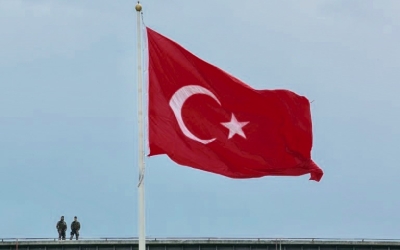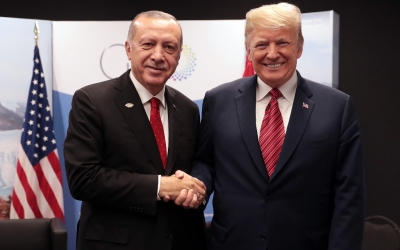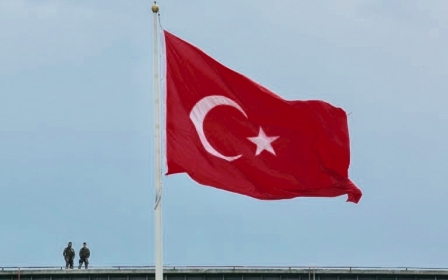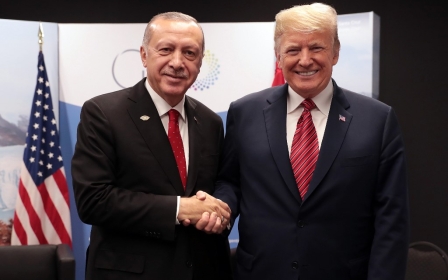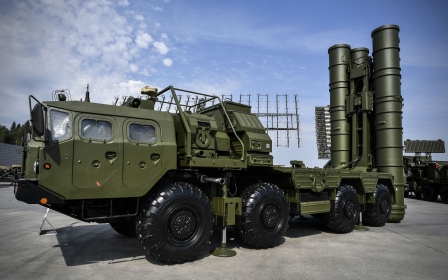EXCLUSIVE: Trump approves Turkish offer for joint S-400 study group
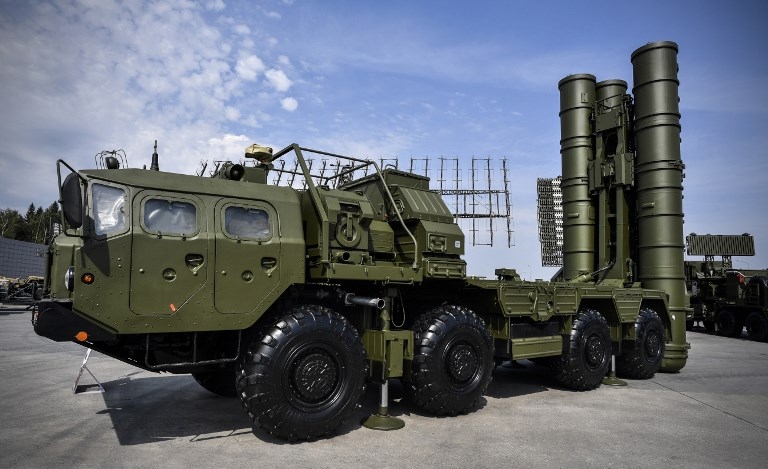
US President Donald Trump has accepted an offer to form a joint technical study group with Turkey to investigate Washington's concerns over Ankara's purchase of the Russian-made S-400 missile system, Middle East Eye has learned.
According to several Turkish officials, Trump, in a phone call with Turkish President Recep Tayyip Erdogan on Wednesday, overruled the Pentagon and the State Department, which had been against the study group.
US officials are concerned that Ankara's purchase of the missile system would put advanced stealth F-35 fighter jets, which Turkey has also ordered, at risk because Moscow could steal sensitive information through the system's radar.
Confident of their assessment on the dangers posed by the missile system, US defence officials had refused to take part in the study group multiple times over the course of the past two months.
In a single phone call, that policy changed.
US National Security Council spokesman Garrett Marquis told Middle East Eye that there's "nothing new to announce at this time".
"We have been clear that obtaining the S-400 would create an unacceptable risk to US technology, our pilots, and our aircraft," Marquis added.
Similarly, Pentagon spokesman Eric Pahon said that discussions remain ongoing.
"The United States has sent technical teams to Turkey more than once and hosted counterparts here to discuss the threat posed by the S-400, our mutual participation in the F-35 programme, and the US Patriot offer," Pahon added, referring to the US-built Patriot surface-to-air missile system, which Washington has said can be made available to Turkey.
Scientist release
The move is a major win for Turkish officials who have been claiming that a study group could find ways to cohabit the S-400 and F-35 purchases, which are of central importance to Turkey's long-term defence needs.
Ankara is part of the F-35 consortium developing the plane and has paid more than $1bn so far for the fighter jets.
In the same call, Erdogan told Trump that the dual Turkish-American citizen and former NASA scientist Serkan Golge was shortly going to be released from jail.
Golge, an alleged member of the group that plotted an attempted coup in Turkey in 2016, had been in custody since late 2016.
Golge was released under judicial control, meaning he is not allowed to leave the country and will have to report regularly to local authorities.
Trump on Thursday thanked Erdogan in front of cameras for facilitating Golge's release.
Markets reacted positively to the phone call, with the Turkish lira rallying more than two percent against the US dollar on Thursday.
State visit
Erdogan, in the phone call to Trump, also reiterated his invitation to the US president for a state visit.
Trump once again accepted the invitation and said he would visit Ankara in July.
The State Department earlier this month opposed the visit due to its timing, saying it would coincide with the arrival of the S-400 missile system to Turkey, which is subject to Congressional sanctions.
The department had suggested Turkey postpone delivery of the system for nine months to help facilitate the visit. However, Turkish officials refused.
Erdogan and his close advisers believed that Trump could use his political leverage to prevent a bilateral crisis over the S-400 purchase.
"Trump has a good relationship with Erdogan. He realises that Turkey cannot step back from its S-400 purchase. Other American officials are differing from him," a senior Turkish official told MEE earlier this month.
However, there is a consensus among the foreign policy establishment both in Turkey and the US that the White House does not have much power against the members of Congress who are adamant about implementing sanctions against Turkey over the Russian missile system.
Last week, a final draft of the National Defence Authorisation Act barred the transfer of F-35s to Turkey in the case of the purchase of the S-400 missile system.
US legislators also threatened the Trump administration that they could ratify specific laws to target Turkey if the president doesn't enforce the existing law that invokes sanctions against Ankara.
This article is available in French on Middle East Eye French edition.
Middle East Eye propose une couverture et une analyse indépendantes et incomparables du Moyen-Orient, de l’Afrique du Nord et d’autres régions du monde. Pour en savoir plus sur la reprise de ce contenu et les frais qui s’appliquent, veuillez remplir ce formulaire [en anglais]. Pour en savoir plus sur MEE, cliquez ici [en anglais].


